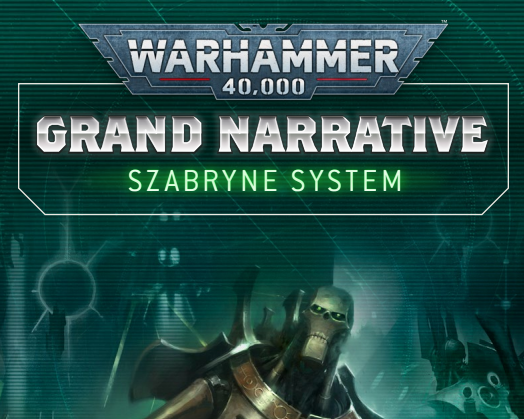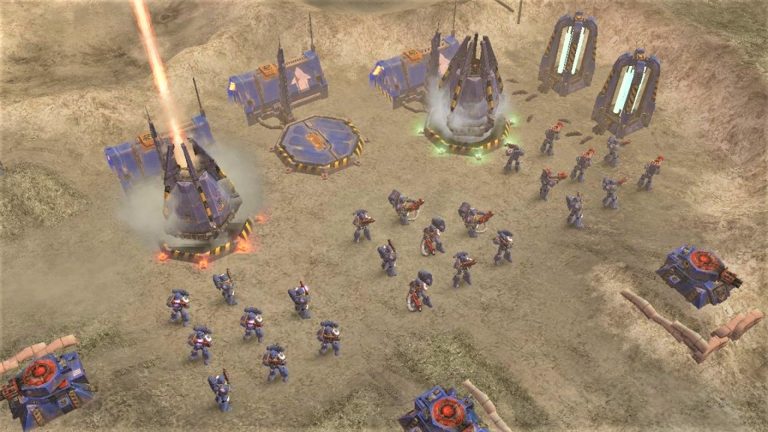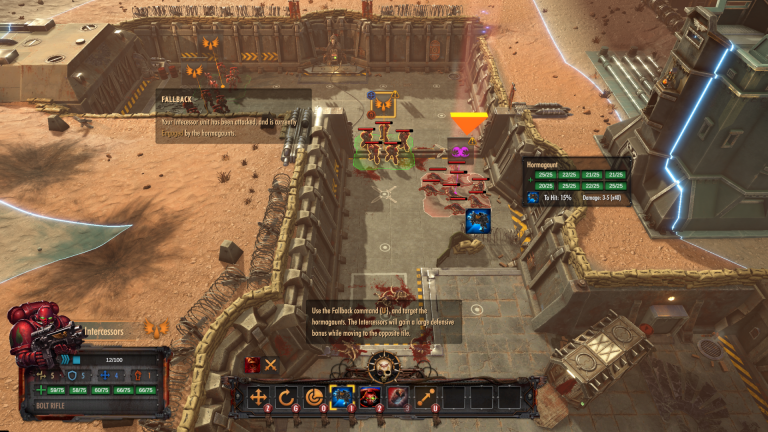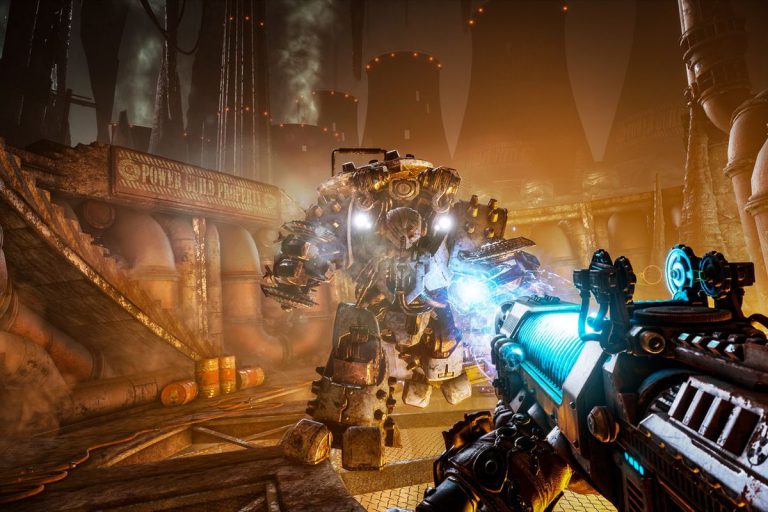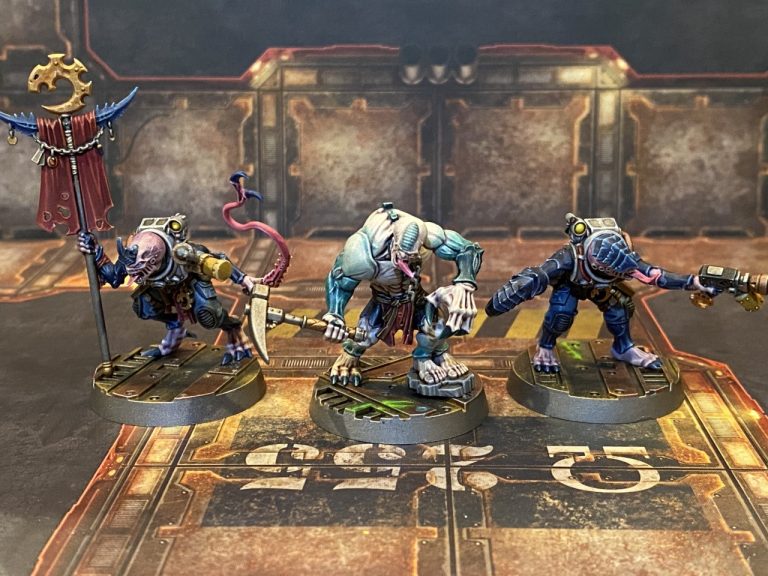Is Warhammer 40K Fantasy Or Sci Fi?
Ah, the age-old debate of whether Warhammer 40K falls under the fantasy or sci-fi genre. It’s a question that has sparked countless discussions among fans and enthusiasts. Some argue that the fantastical elements of the Warhammer 40K universe make it a fantasy setting, while others point to its futuristic technology and science fiction themes. So, what’s the verdict? Is Warhammer 40K fantasy or sci-fi? Let’s dive into this intriguing topic and explore the various aspects that make up this beloved franchise.
When it comes to Warhammer 40K, it’s important to understand that it blends elements from both fantasy and science fiction genres, creating a unique and immersive universe. On one hand, you have fantastical creatures like orcs, demons, and mythical beings, which are staples of traditional fantasy settings. On the other hand, you have advanced technology, space travel, and futuristic warfare, which are common themes in science fiction. This amalgamation of fantastical and technological elements is what sets Warhammer 40K apart and makes it a genre unto itself.
In conclusion, Warhammer 40K can be best described as a fusion of fantasy and science fiction. It transcends the boundaries of traditional genre classifications and creates its own captivating world. Whether you’re drawn to the epic battles between ancient races or fascinated by the intricate details of futuristic technology, Warhammer 40K offers something for everyone. So, whether you’re a die-hard fan or just curious about this expansive universe, buckle up and get ready to embark on an unforgettable journey through the realms of fantasy and sci-fi.

Is Warhammer 40K Fantasy or Sci Fi?
Warhammer 40K is a popular tabletop game that has captured the hearts and imaginations of gamers worldwide. But when it comes to categorizing the genre of Warhammer 40K, the question arises: is it fantasy or science fiction? The answer is not as straightforward as you might think. Warhammer 40K exists in a unique space that combines elements of both fantasy and science fiction, creating a rich and complex universe that has captivated fans for decades.
Warhammer 40K: A Blend of Fantasy and Sci-Fi
In the vast universe of Warhammer 40K, there are elements that are undeniably fantastical. From mythical creatures like dragons and daemons to powerful sorcery and ancient prophecies, the game draws heavily from fantasy tropes. The various factions and races in the game, such as the Space Marines, Orks, and Eldar, each have their own distinct lore and characteristics that align with traditional fantasy archetypes.
However, Warhammer 40K also incorporates many science fiction elements. The game is set in a dystopian future where humanity has spread across the galaxy, battling against alien races and facing the threat of extinction. Advanced technology, futuristic weaponry, and space travel are integral parts of the game’s narrative. The concept of genetic modification, cybernetic enhancements, and the use of advanced machinery are prevalent throughout the Warhammer 40K universe.
The Fantasy Elements in Warhammer 40K
One of the key aspects that contribute to the fantasy feel of Warhammer 40K is the presence of magic and supernatural beings. In the game, psychic powers are a significant part of the gameplay mechanics and lore. Psykers, individuals with the ability to tap into the warp, a dimension of psychic energy, can cast spells, summon creatures, and wield potent psychic abilities. These elements are reminiscent of traditional fantasy settings where magic and mystical forces play a central role.
Additionally, the inclusion of mythical creatures and gods further enhances the fantasy aspect of Warhammer 40K. Chaos Daemons, for example, are otherworldly beings that are summoned from the warp and serve the Chaos Gods. These creatures, with their unique abilities and characteristics, evoke a sense of otherworldly wonder and magic.
The Science Fiction Elements in Warhammer 40K
On the other hand, Warhammer 40K incorporates numerous science fiction elements that set it apart from traditional fantasy settings. The game takes place in a distant future, where humanity has developed advanced technology and achieved interstellar travel. Spacefaring vessels, known as starships, traverse the galaxy, and futuristic weapons such as plasma rifles and laser cannons are used in combat.
The concept of genetic engineering and cybernetic enhancements also adds a sci-fi flavor to Warhammer 40K. The Space Marines, for instance, are genetically modified super-soldiers who are encased in power armor and possess enhanced physical abilities. These advancements in technology and bioengineering create a futuristic setting that is characteristic of science fiction.
In conclusion, Warhammer 40K can be best described as a fusion of fantasy and science fiction. It combines the elements of magic, mythical creatures, and ancient prophecies with futuristic technology, space travel, and advanced weaponry. This unique blend of genres has contributed to the immense popularity and enduring appeal of Warhammer 40K among gamers and fans worldwide. Whether you prefer the fantastical or the futuristic, Warhammer 40K offers a rich and immersive universe that caters to both fantasy and science fiction enthusiasts. So, dive into the world of Warhammer 40K and embark on epic battles in a universe where the lines between fantasy and sci-fi blur.
Key Takeaways: Is Warhammer 40K Fantasy or Sci Fi?
- Warhammer 40K is a science fiction tabletop game set in a dystopian future.
- It combines elements of both fantasy and science fiction genres.
- The game features futuristic technology, alien races, and supernatural powers.
- It also incorporates elements of medieval warfare, magic, and mythical creatures.
- Ultimately, Warhammer 40K can be considered a unique blend of fantasy and science fiction.
Frequently Asked Questions
Warhammer 40K is a popular tabletop game that has captured the imagination of millions of players around the world. One question that often comes up is whether Warhammer 40K falls into the category of fantasy or science fiction. Let’s explore this question in more detail and shed some light on the subject.
1. Is Warhammer 40K set in a fantasy world?
While Warhammer 40K does have elements of fantasy, it is primarily considered a science fiction universe. The game is set in the distant future where advanced technology, interstellar travel, and powerful alien races are prevalent. However, it is important to note that the Warhammer 40K universe also incorporates fantastical elements such as mystical powers and mythical creatures.
Warhammer 40K strikes a unique balance between sci-fi and fantasy, creating a rich and immersive setting that appeals to fans of both genres. The combination of futuristic technology and supernatural elements gives the game its distinct flavor and sets it apart from other science fiction franchises.
2. What are the key sci-fi elements in Warhammer 40K?
Warhammer 40K is steeped in science fiction elements that contribute to its overall world-building. The game features advanced technology, such as warp drives for interstellar travel, lasguns, power armor, and massive war machines. The factions in Warhammer 40K also utilize futuristic tactics and strategies, making use of cybernetics, genetic enhancements, and artificial intelligence.
Moreover, the game explores themes commonly associated with science fiction, such as the exploration of space, colonization of new worlds, and the clash of different alien civilizations. These sci-fi elements form the foundation of the Warhammer 40K universe and provide a backdrop for epic battles and gripping storytelling.
3. Are there fantasy elements in Warhammer 40K?
Yes, Warhammer 40K incorporates fantasy elements alongside its science fiction backdrop. The game features various mystical powers known as psychic abilities, which are possessed by certain characters and factions. These psychic powers enable users to manipulate energy, control minds, and summon otherworldly creatures.
Additionally, Warhammer 40K includes fantastical creatures such as daemons, demons, and other mythical beings. These creatures exist within the game’s lore and play a significant role in the narrative, adding an extra layer of fantasy to the overall setting.
4. Can Warhammer 40K be classified as a blend of genres?
Indeed, Warhammer 40K can be considered a blend of genres, combining elements of both fantasy and science fiction. The game’s unique mix of futuristic technology, alien races, and supernatural abilities creates a distinct hybrid setting that appeals to fans of various genres.
This blend of genres is one of the reasons why Warhammer 40K has such a dedicated and passionate fan base. It offers a diverse and expansive universe that caters to different interests and preferences, making it a versatile and enduring franchise.
5. How does the fantasy and sci-fi blend enhance the Warhammer 40K experience?
The fusion of fantasy and science fiction in Warhammer 40K adds depth and complexity to the game’s lore and gameplay. It allows for a wide range of storytelling possibilities, combining epic space battles with supernatural encounters and mythical creatures.
This blend also provides players with a diverse array of factions to choose from, each with its own unique characteristics and abilities. Whether you prefer the futuristic technology of the Space Marines or the mystical powers of the Chaos Sorcerers, Warhammer 40K offers something for everyone, making it an engaging and immersive gaming experience.
Why Warhammer 40K Is NOT Sci-fi | Warhammer 40K Lore
Final Thoughts
After exploring the vast universe of Warhammer 40K, it is clear that it is a unique blend of both fantasy and science fiction. The rich lore and diverse factions provide a fantastical backdrop for epic battles, while the advanced technology and futuristic elements add a sci-fi twist. This combination is what makes Warhammer 40K so captivating and beloved by fans all over the world.
In this grimdark universe, we are transported to a future where ancient gods, powerful psychic abilities, and mythical creatures coexist with advanced weaponry, interstellar travel, and cybernetic enhancements. The intricate world-building and attention to detail make Warhammer 40K a truly immersive experience, where the boundaries between fantasy and science fiction blur.
When engaging in the tabletop game or diving into the novels and video games, we get to witness the clash of these two genres, creating a unique and thrilling narrative. Whether you prefer the fantastical elements of the game or the futuristic technology, Warhammer 40K offers something for everyone. So, whether you’re a fan of fantasy or sci-fi, you’ll find yourself right at home in the expansive and captivating world of Warhammer 40K.

